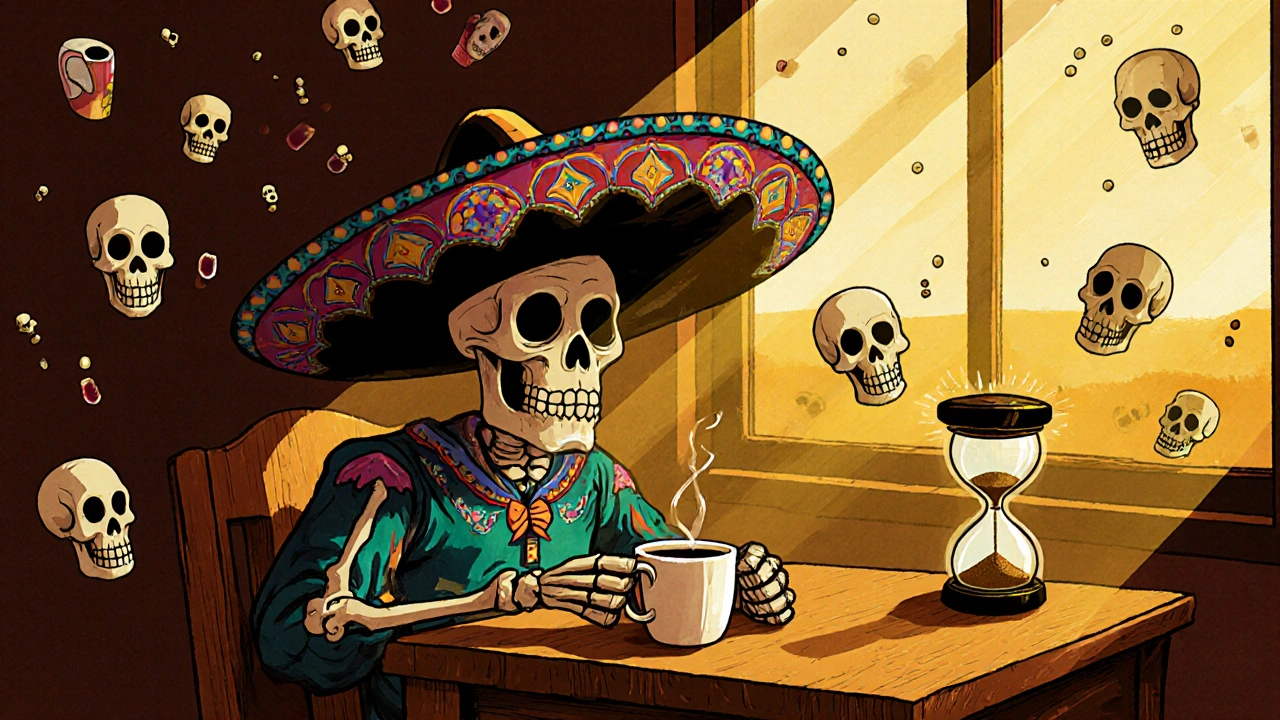Caffeine Cutoff Times: When to Stop Coffee for Better Sleep
Learn the science-backed caffeine cutoff time to improve sleep onset, reduce nighttime wakefulness, and boost sleep quality. Stop guessing-start sleeping better.
When you drink a cup of coffee, you're not just getting a boost—you're introducing a powerful drug called caffeine, a central nervous system stimulant that blocks adenosine, the chemical that tells your brain it's time to sleep. Also known as 1,3,7-trimethylxanthine, it's the most widely used psychoactive substance in the world, and it's quietly stealing hours from your rest. Even if you don’t feel wired, caffeine can still be cutting into your deep sleep, and you might not even know it.
That’s because caffeine doesn’t vanish when you feel alert. It takes about 5 hours, the average half-life of caffeine in a healthy adult for your body to clear half of it. So if you drink a cup at 3 p.m., you still have half that dose swirling in your system at 8 p.m.—enough to delay sleep onset and reduce deep sleep by up to 20%. People with slower caffeine metabolism, a genetic trait that determines how fast your liver breaks down caffeine, might feel its effects for over 10 hours. And if you’re taking certain medications or have liver issues, that clock slows down even more.
It’s not just about when you drink it—it’s about how much and how often. A single soda might not wreck your night, but if you’re sipping energy drinks all day or grabbing espresso after lunch because you’re tired from poor sleep, you’re stuck in a loop. Your brain gets used to caffeine just to feel normal, so when you skip it, you get headaches and fog. That’s not a morning pick-me-up—that’s dependence.
And here’s the kicker: you can’t just cut caffeine cold turkey and expect sleep to magically improve. Your body needs time to reset. Start by moving your last cup to noon. Try swapping afternoon coffee for herbal tea or water. Track your sleep for a week with a simple app or even a notebook. You might be surprised how much better you sleep when you stop chasing energy with stimulants.
The posts below dive into real cases—people who thought they were fine with late-night coffee, only to find out their insomnia was tied to caffeine. Others discovered that their afternoon energy drink was making their migraines worse. There’s also advice on how to wean off caffeine without crashing, what foods and supplements can help your body recover, and why some people can drink espresso before bed and still sleep like a baby—while others can’t even handle a cup at 10 a.m. This isn’t about giving up coffee. It’s about understanding how it works in your body, so you can use it without paying for it in lost sleep.

Learn the science-backed caffeine cutoff time to improve sleep onset, reduce nighttime wakefulness, and boost sleep quality. Stop guessing-start sleeping better.